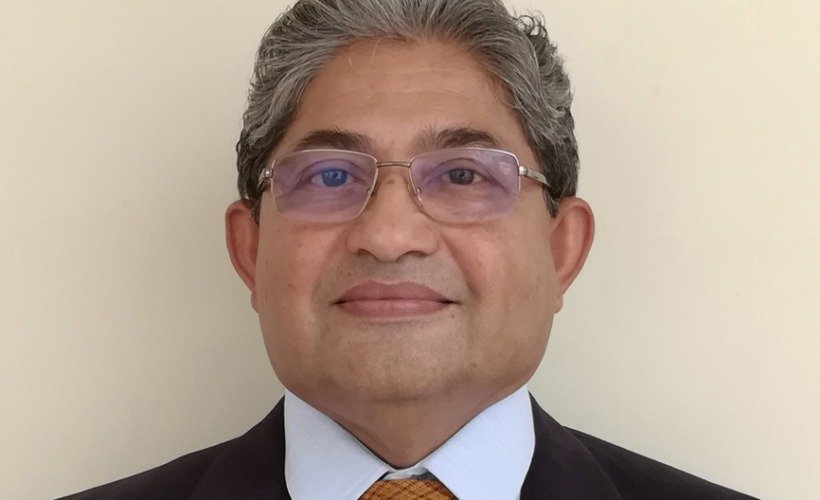
The author focuses on the statutory provision under the Legal Services Authorities Act, 1987, which acts as a bridge over Nyaya Panchayat and the judicial justice delivery system
The Preamble of the Legal Services Authorities Act, 1987 reads as under:
The Law: An Act to constitute legal services authorities to provide free and competent legal services to the weaker sections of the society to ensure that opportunities for securing justice are not denied to any citizen by reason of economic or other disabilities, and to organise LokAdalats to secure that the operation of the legal system promotes justice on a basis of equal opportunity.
Introduction: Justice P.N. Bhagwati (1921-2017), the 17th Chief Justice of India has been credited with landmark judgments and for pioneering innovations in law. Lok Adalat is one of them, which resulted in the enactment of the Legal Services Authorities Act 1987. The movement that began in his home state, Gujarat has grown remarkably. The noble cause of Nyaya Panchayat, which also has the similar goal of Alternative Dispute Resolutions (ADR), at the most accessible place, the Panchayat. However, the following two cases will prove that the ground realities of free and speedy justice are far from the reach of the weaker sections of the society. Lok Adalat provides a purposeful legal instrument whereby whether disputes are at pre-litigation stage or Nyaya Panchayat has not been able to solve or already in the court of law. Lok Adalat is an ADR bridge. It is flexible, it facilitates, it compromises and also is firm in the orders passed which are final and conclusive.
Case I: Smt Twes Nongsiej versus State of Meghalaya on 17 March, 2017. (See, https://indiankanoon.org/doc/69689922/) The petitioner being illiterate had no idea where in the earlier Lok Adalat procedure of 2014 she had conceded her land to the PWD. The aggrieved, thus, had to approach the High Court. The counsel for the petitioner submitted that the PWD was not even represented when the award was made by the Lok Adalat. The counsel for the respondent, the Government of Meghalaya argued that once the award was made with due consent of the parties; the award of the Lok Adalat is final.
The High Court took note of the free and fair consent which was not coerced; section 21 and all its clauses concerning the finality of the Legal Services Authorities Act, 1987 was to be upheld. The Court closed any further dispute and dismissed the writ of the petitioner.
Case II: Om Prakash Gupta versus State of Bihar and Other concerned officers of government departments. The case adjudication was in the High Court of Patna (writ Jurisdiction, case no. 25132, 2019).(See: https://indiankanoon.org/doc/178729693/)
The petitioner Om Prakash Gupta, 70 years old. His land was acquired by the Government of Bihar that was approved by it for about rupees three and a half crores which it failed to honour. Upon petitioning the Lok Adalat, it had ordered the compensation to be paid. In the meantime, the beneficiary of the compensation died.
Following which a writ petition was filed by the son of the deceased to grant him the compensation as he was the legal heir. The High Court of Patna took cognisance of it and delivered the following Oral Order upholding the Lok Adalat order under Section 21 of the Legal Services Act, 1987 and advised him to proceed to the appropriate forum to enforce and implement the order.
Analysis: First, in both the above cases, the supremacy of the section 21 of the Act established. The purpose of Lok Adalat cannot be vitiated by afterthought or hindsight deliberations.
Second, the legal principle, ‘ignorance of the law is not an excuse’ is absolute. In the first case where it has been submitted that the petitioner was unaware of the actual value of the land since she was uneducated has no legal basis.
Third, the above cases prove that the Courts would not be convinced by any reason for further litigation, for if they do, it would vitiate section 21 of the Act.
Fourth, one must never forget that Lok Adalat is an ‘alternative dispute resolution’ whose mechanism consists in bringing two parties together to an understanding; that with dialogue and compromise disputes may be solved, quickly, efficiently and without the battles of attrition in the public court, which after its wear and tear, leaves behind parties with greater animosity than at its commencement. In other words, the logic of Lok Adalat is not to judge the merits of the case as in a public court of law but to arrive at a mutual settlement and consenting to the agreed award. Further, approaching a court to dispute the award is therefore a wrong avenue as the court is not the adjudicator of the award.
The Nature of Lok Adalat: Lok Adalat is a unique Indian contribution to the world of jurisprudence, a people’s community oriented dispute settlement scheme. The rest of the world, before the modern legal structures were established, had carried on a justice administration suitable for their times. Ancient India looked up to the authorities, such as kings, big and small, and in small village communities, the five elders or panchas from where panchayat was established. Justice – award and punishment – was instant and before the assembled community. Generally they obeyed. Those who did not, had to suffer the wrath of the community.
However, our present day Lok Adalat dispensation is highly formalised with the enacted law and an established hierarchy of institutions. The purpose being, unlike in the ancient times where prejudices, caste and creed discriminations prevailed, an enacted law ensures that a banana republic justice is eschewed and rejected. India is a well-established republic with a modern rule of law. The well-ordered hierarchy of Lok Adalat bodies as follows: a) National Legal Service Authority, b) Supreme Court Legal Services Committee, c) State Legal Services Authority, d) High Court Legal Service Committee, e) District Legal Services Authority, f) Taluka Legal Services Committee. There are also different types Lok Adalat bodies: 1) Permanent, for disposing cases relating to public utility such as regarding essential services. 2) National, held on a specific topic to dispose of piled up pendency of cases. 3) Mega Adalat is a kind of large camp at state level. 4) Mobile Adalat is an outreach service for convenience of the people. The cases dealt in Lok Adalat are both civil, that is including revenue cases, and criminal including both compoundable and non-compoundable. Among civil cases the Lok Adalat also deals with pre-litigation cases such as bank loan recovery cases, labour disputes, bills such as electricity etc., can be solved mutually and amicably.
In so far as criminal cases are concerned, the compoundable ones which may be solved through compromise and dropping of charges in such instances as land acquisition, matrimonial disputes, civil cases and also those in pre-litigation stages. Non-compoundable cases, on the other hand, are non-negotiable. These are serious cases concerning the right to life and property, injury and robbery, and the like which call for criminal proceedings in a criminal court of law.
Conclusion: Lok Adalat is a very progressive institution. It is non-adversarial and serves justice in its true sense. It is also progressive from the perspective of adopting to modern times and situations.
For instance, with the break out of covid-19 pandemic, E-Lok Adalat has been established. For your benefit, you may log on into: https://districts.ecourts.gov.in/national-lok-adalat-0and avail the services.
Businesses, big, medium or small, all have a lot to gain from Lok Adalat system to resolve the problems vis-à-vis their vendors, various business clients and public agencies. The system, if approached with prudence and well intentioned discretion can save money and time, and gain mental peace.
The columnist is a writer with Oxford University Press and a published author. Email: albuquerque.daniel@gmail.com





